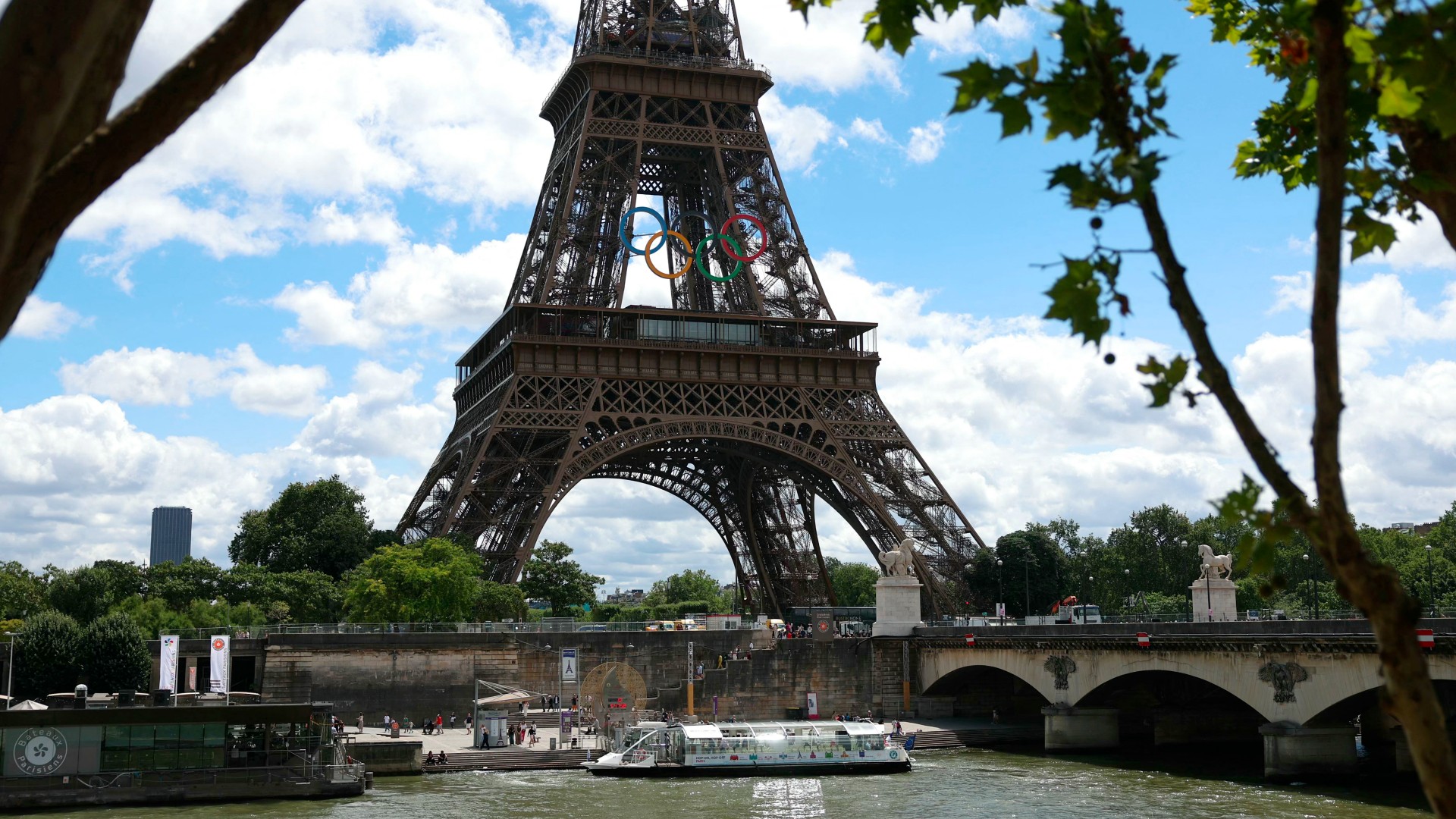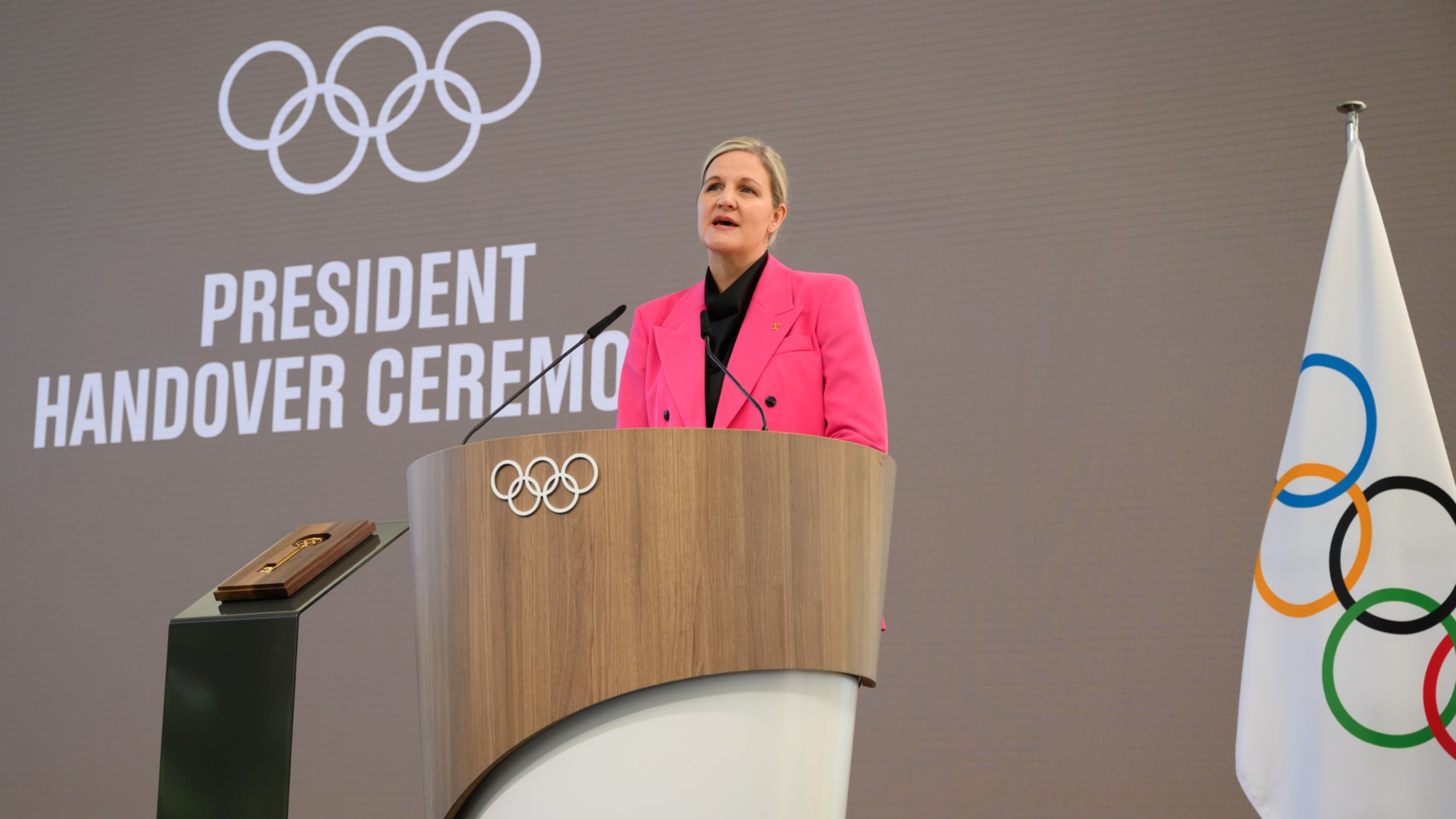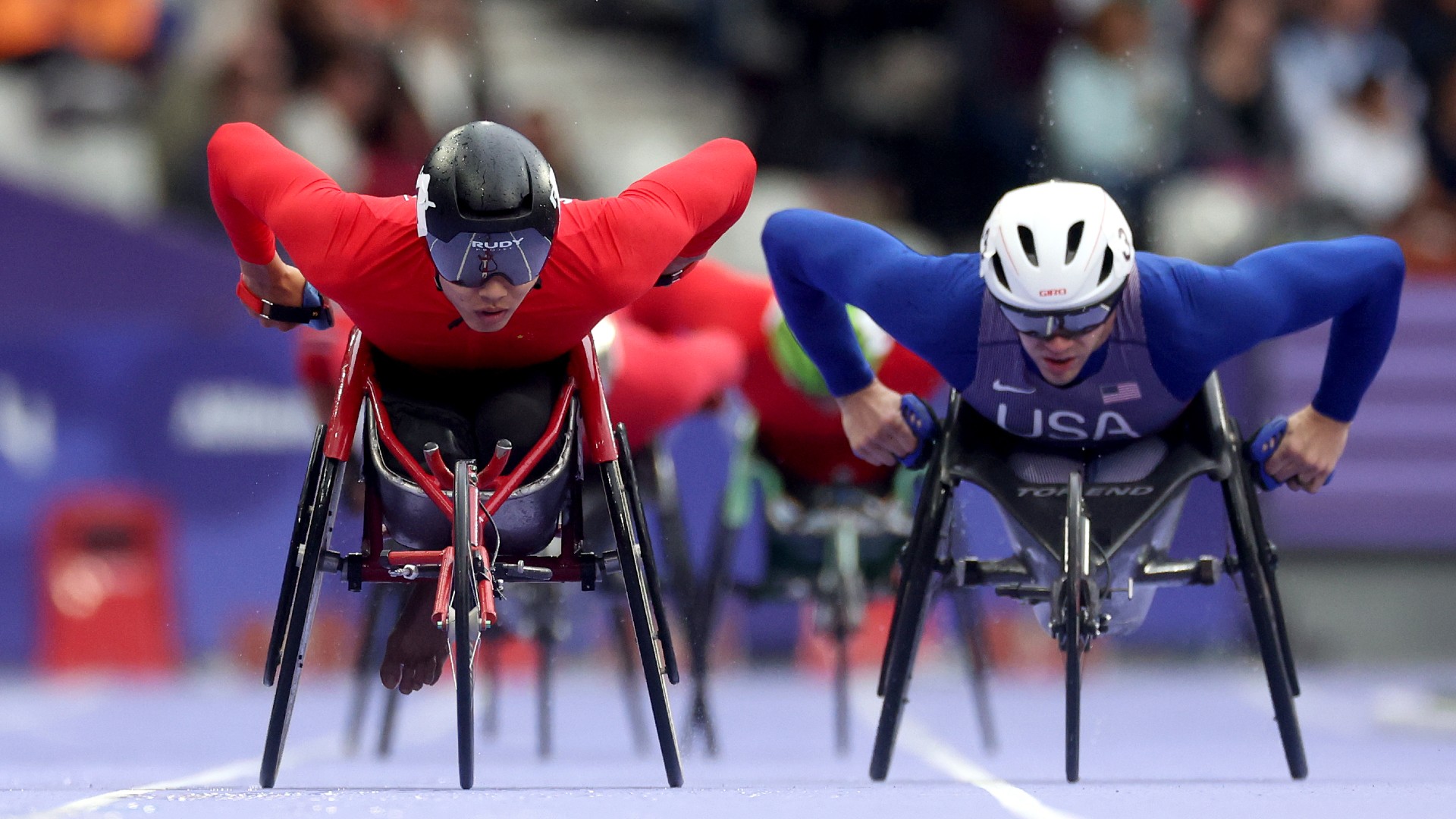The safety of the Seine River remains murky
Cleaning the river ahead of the Paris Olympics has been a massive undertaking


A free daily email with the biggest news stories of the day – and the best features from TheWeek.com
You are now subscribed
Your newsletter sign-up was successful
With the opening ceremony of the Paris Olympics fast approaching, questions remain over whether the Seine will be clean enough for athletes to swim in. Triathlon and marathon events are set to take place in the river, where swimming has been illegal for over a century.
After numerous delays, the mayor of Paris, Anne Hidalgo, finally took a plunge into the Seine this week; she claims the city successfully cleaned it up, "fulfilling a promise that has become a symbol of the Paris Olympics," said The New York Times. Hidalgo postponed her initial plan to swim on June 23 because of the river's water level and the amount of bacteria present. "The Seine is exquisite," Hidalgo said. "The water is very, very good. A little cool, but not so bad.''
Despite this apparent vote of confidence, uncertainty about the safety of the Seine has become a focal point of this year's Games.
The Week
Escape your echo chamber. Get the facts behind the news, plus analysis from multiple perspectives.

Sign up for The Week's Free Newsletters
From our morning news briefing to a weekly Good News Newsletter, get the best of The Week delivered directly to your inbox.
From our morning news briefing to a weekly Good News Newsletter, get the best of The Week delivered directly to your inbox.
'A complicated and very costly problem'
Paris has invested $1.5 billion over the past few years in a massive clean-up project, building new infrastructure to trap more stormwater when it rains. This is the "same water that contains bacteria-laden wastewater that enters the river during periods of heavy rain and makes it unsafe to swim in," said The Associated Press. In May, Paris officials instituted a massive underground water storage basin near the Austerlitz train station to collect excess rainwater and prevent wastewater from flowing into the Seine. The basin holds the "equivalent of 20 Olympic swimming pools." This is the "centerpiece of major infrastructure improvements that the city has rushed to finish in time for the Games," said The AP, but it was also done to "ensure that Parisians have a cleaner Seine in years to come."
While the city has worked hard to clean the river, a few days of torrential rain could push the levels of E. coli beyond the limit of 900 colony-forming units per 100 milliliters, which the World Triathlon Federation has determined as safe for competition."The Seine is not a special case," Metin Duran, a professor of civil and environmental engineering at Villanova University who has researched stormwater management, said to The AP. "It really is a complicated and very costly problem."
Official city testing showed that E. coli levels at The Pont Alexandre III bridge, where the triathlon events will be held, were above acceptable levels on 22 out of 30 days between June 3 and July 2, "potentially exposing athletes to serious health risks," CNN said. Still, authorities say the Seine's water quality has improved recently, and they are "confident for the Olympics now."
"We are having weather that is more consistent with the season," Antoine Guillou, the deputy mayor of Paris, said to CNN. "The quality of the Seine is good."
A free daily email with the biggest news stories of the day – and the best features from TheWeek.com
'The health of the athletes must come first'
Only time will tell if the confidence of French leaders will convince Olympic athletes that the river is safe. Their response thus far has been mixed. "The Seine is not made for swimming," Brazil's Ana Marcela Cunha said to Bloomberg earlier this year. "We know what the Pont Alexandre III and the Eiffel Tower represent, but I think that the health of the athletes must come first." Team USA swimmer Katie Grimes was similarly apprehensive when asked if she was concerned about the quality of the water. "We were supposed to have an Olympic test event there last summer, and that got canceled," she said. By contrast, U.S. triathlete Morgan Pearson said he is "not concerned at all" to Yahoo Sports. With the safety of the water out of his control, he can "only really control myself and my training," he said. "It's honestly not worth even thinking about."
Organizers have several contingency plans if heavy rains affect the Seine's flow during the Games. The triathlon competition would no longer feature the swimming leg, and marathon swimming would be moved to the Vaires-sur-Marne Nautical Stadium in the greater Paris region. Canceling the swim portion is uncommon, but it "has happened a few times," Olalla Cernuda, the head of communications at World Triathlon, said to The AP. "And it's always linked with water quality issues."
Theara Coleman has worked as a staff writer at The Week since September 2022. She frequently writes about technology, education, literature and general news. She was previously a contributing writer and assistant editor at Honeysuckle Magazine, where she covered racial politics and cannabis industry news.
-
 Should the EU and UK join Trump’s board of peace?
Should the EU and UK join Trump’s board of peace?Today's Big Question After rushing to praise the initiative European leaders are now alarmed
-
 Antonia Romeo and Whitehall’s women problem
Antonia Romeo and Whitehall’s women problemThe Explainer Before her appointment as cabinet secretary, commentators said hostile briefings and vetting concerns were evidence of ‘sexist, misogynistic culture’ in No. 10
-
 Local elections 2026: where are they and who is expected to win?
Local elections 2026: where are they and who is expected to win?The Explainer Labour is braced for heavy losses and U-turn on postponing some council elections hasn’t helped the party’s prospects
-
 The US Olympic figure skating team might be the ‘greatest’ ever
The US Olympic figure skating team might be the ‘greatest’ everIn the Spotlight The team will take to the ice in February
-
 Shohei Ohtani is caught in a financial controversy — again
Shohei Ohtani is caught in a financial controversy — againIn the Spotlight The controversy concerns Ohtani and his agent, Nez Balelo
-
 Biggest No. 1 draft pick flops in MLB history
Biggest No. 1 draft pick flops in MLB historyin the spotlight Injuries, bad luck and disappointing performances result in draft infamy for these unlucky players
-
 Kirsty Coventry: the former Olympian and first woman to lead the IOC
Kirsty Coventry: the former Olympian and first woman to lead the IOCIn the Spotlight Coventry, a former competitive swimmer, won two Olympic gold medals
-
 Torpedo bats could revolutionize baseball and players are taking notice
Torpedo bats could revolutionize baseball and players are taking noticeIn the Spotlight The new bats have been used by the New York Yankees with tremendous success
-
 New women's basketball league looks to build on the sport's success with fans
New women's basketball league looks to build on the sport's success with fansIn the Spotlight Unrivaled will provide an offseason opportunity for WNBA players
-
 Women are getting their own baseball league again
Women are getting their own baseball league againIn the Spotlight The league is on track to debut in 2026
-
 Paralympics: can Team USA turn things around for Los Angeles 2028?
Paralympics: can Team USA turn things around for Los Angeles 2028?Today's Big Question Beijing and London offer model for how hosting can lead to medal success as China maintains dominance
